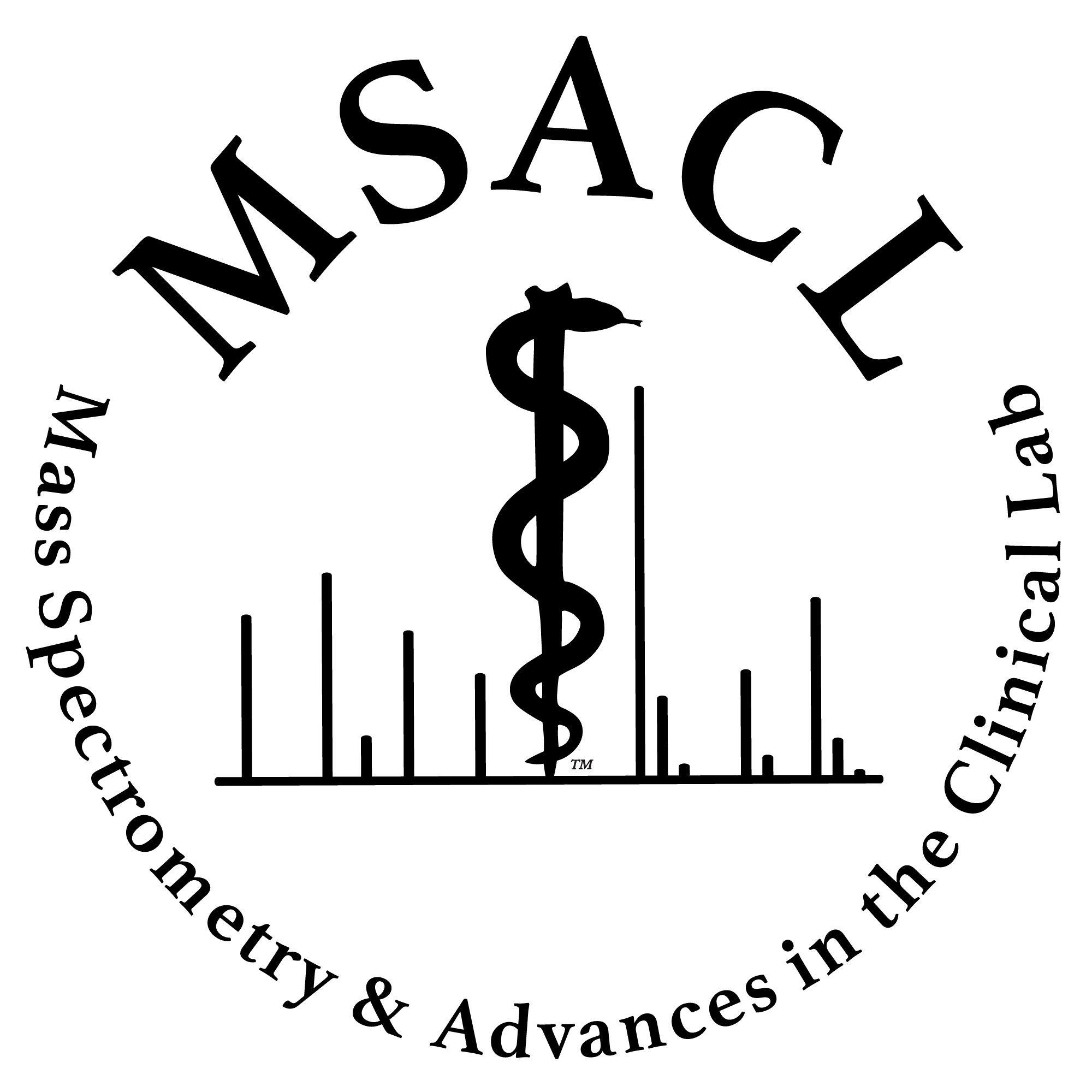MSACL 2024 Abstract
Self-Classified Topic Area(s): Proteomics > Cases in Clinical Analysis > Precision Medicine
|
|
Podium Presentation in Steinbeck 2 on Thursday at 16:00 (Chair: Guinevere Lageveen-Kammeijer / Tamas Pongracz)
 Absolute Quantification of Protein Biomarkers in Human Plasma by UPLC-MRM-MS Assay for Early Breast Cancer Diagnosis Absolute Quantification of Protein Biomarkers in Human Plasma by UPLC-MRM-MS Assay for Early Breast Cancer Diagnosis
Margret Thorsteinsdottir (1,2,3), Kristrun Yr Holm (1,2), Valdis Gunnarsdottir Þormar (2,3), Finnur F. Eiríksson (1,3), Yassene Mohammed (5), Christoph H Borchers (6), Sigridur Klara Bödvarsdottir (2,4)
(1) Faculty of Pharmaceutical Sciences, University of Iceland, Reykjavik, Iceland, (2) BioMedical Center, University of Iceland, Reykjavik, Iceland, (3) ArcticMass, Reykjavik, Iceland, (4) Faculty of Medicine, University of Iceland, Reykjavik, Iceland,(5) Center for Proteomics and Metabolomics, Leiden University Medical Center, Leiden, the Netherlands,
(6) Segal Cancer Proteomics Centre, Lady Davis Institute for Medical Research, McGill University, Montreal, Quebec, Canada

|
Margret Thorsteinsdottir, PhD (Presenter)
University of Iceland |
|
Presenter Bio: Professor in Pharmaceutical Analytical Chemistry at the Faculty of Pharmaceutical Sciences, University of Iceland and R&D Director of ArcticMass LTd, Reykjavik, Iceland. Dr. Thorsteinsdóttir received her PhD from Uppsala University, Sweden in 1998. From 2000 to 2009 she was the managing director of Bioanalytical Laboratories at deCODE Genetics, Reykjavik, Iceland. She has extensive experience in development of analytical methods for metabolite profiling and quantification of clinical biomarkers in various biofluids utilizing chemometrics with the goal of improved clinical management of patients towards personalized patient care.
Her current research interest includes studies of lipid metabolism in cancer cells and profiling plasma derived biomarkers for early detection of BRCA-related breast cancer. She is responsible for implementation of clinical mass spectrometry for support of diagnostics and therapeutic drug monitoring in collaboration with ArcticMass and the Landspitali University Hospital, Reykjavik, Iceland with major focus on quantitative targeted proteomics for clinical diagnosis. She is a principal investigator of the Icelandic Research Rannis projects, profiling metabolites for breast cancer diagnosis and search for novel biomarkers for early breast cancer diagnosis by metabolomics. Dr. Thorsteinsdóttir is a principal investigator for the Marine Biotechnology ERA-net project CYNOBESITY and the Horizon 2020 project MossTech, with the main task to isolate, identify and structurally characterize bioactive compounds from cyanobacteria, Icelandic mosses and liverworts. She is one of the founders of Females in Mass Spectrometry (FeMS), she is a vice-leader of the working group clinical significance and applications of (epi)lipidomics in the pan-European network, EpiLipidNET and vice-chair of the Nordic Metabolomics Society.
|
|
|
|
|
Abstract Introduction: Breast cancer (BC) is the most prevalent cancer among women worldwide and ranks as the second leading cause of cancer-related deaths. Fortunately, the prognosis for most breast cancers is very good when detected early and therefore screening method for timely detection of BC is vital for improving survival rates. The hope is that early screening of BC can be accomplished using non-invasive techniques such as analyzing blood samples with a targeted proteomic assay.
Objectives: The objective of this study was to determine protein biomarkers with diagnostic and prognostic value in human plasma to improve early BC diagnosis.
Methods: The absolute concentration of 131 proteins was determined in 291 biobank-based plasma samples, from BC patients and healthy controls. The panel of proteins were quantified using PeptiQuantTM protein human plasma kits containing paired labeled and unlabeled peptide standards. The plasma samples were proteolytically cleaved and concentrated by solid-phase extraction using a liquid handling robot and analyzed with ultra performance liquid chromatography-multiple reaction monitoring-mass spectrometry (UPLC-MRM-MS) assay. Data analyses were conducted with MassLynx and Skyline,while SIMCA Pro-17, R studio and Python were used for multivariate data analyzing and machine learning. A predictive machine learning models, including, random forest (RF) and support vector machine (SVM), were developed using the SciKit-Learn library in Python, to distinguish between BC samples and healthy controls while also considering various subgroups and clinical information. This study applied an ensemble classifier with soft voting to the dataset. The performance of the classifiers was evaluated using confusion matrices including accuracy, precision, recall, F1-score, and ROC curves.
Results: The targeted proteomics assay was successfully implemented for the absolute quantification of 131 proteins in human plasma. A total of 106 proteins were quantifiable in the biobank-based plasma samples with acceptable precision and accuracy and above the lower limit of quantification. The plasma samples were analyzed in separate batches, each containing 25 cases and 25 controls with a negligible batch difference. The dataset containing measurements of the 106 proteins from the 291 biobank-based plasma samples was divided into 233 (80%) samples for training purposes and 58 samples (20%) for testing. Cross-validation involved splitting the dataset into multiple subsets, training the models on different combinations of these subsets, and evaluating their performance. The predictive classifier models, RF and SVM, classified cases with 60% prediction accuracy and AUCs between 0.71 and 0.75. The soft voting ensemble classifier combining RF and SVM achieved 70% prediction accuracy and an Area Under Curve (AUC) score of 0.75. These results indicate that the models have a reasonable discriminatory power to classify cases from controls. The results also highlight promising prospects for early breast cancer diagnosis, especially in the comparison between sporadic BC and BC from BRCA2 mutation carriers, where the ensemble classifier achieved an AUC of 0.81.
Conclusions: Preliminary results indicate a potential difference in protein composition between plasma samples from BC patients and healthy controls that might suggest candidate biomarkers for early BC diagnosis.
|
|
Financial Disclosure
| Description | Y/N | Source |
| Grants | yes | |
| Salary | no | |
| Board Member | no | |
| Stock | no | |
| Expenses | no | |
| IP Royalty | no | |
| Planning to mention or discuss specific products or technology of the company(ies) listed above: |
no |
|

